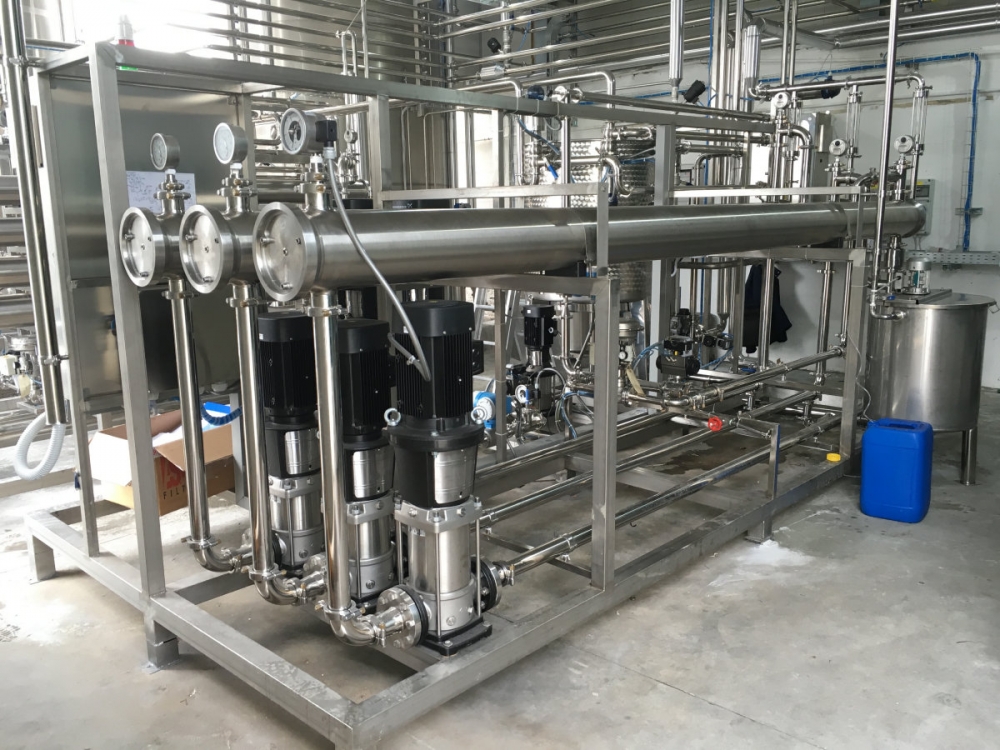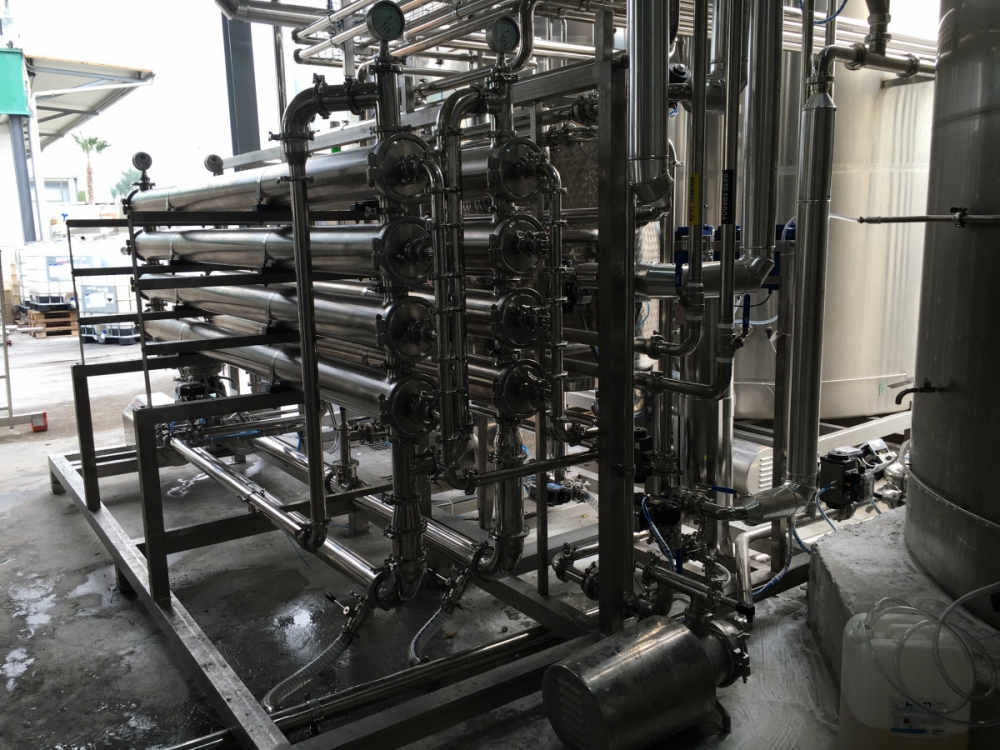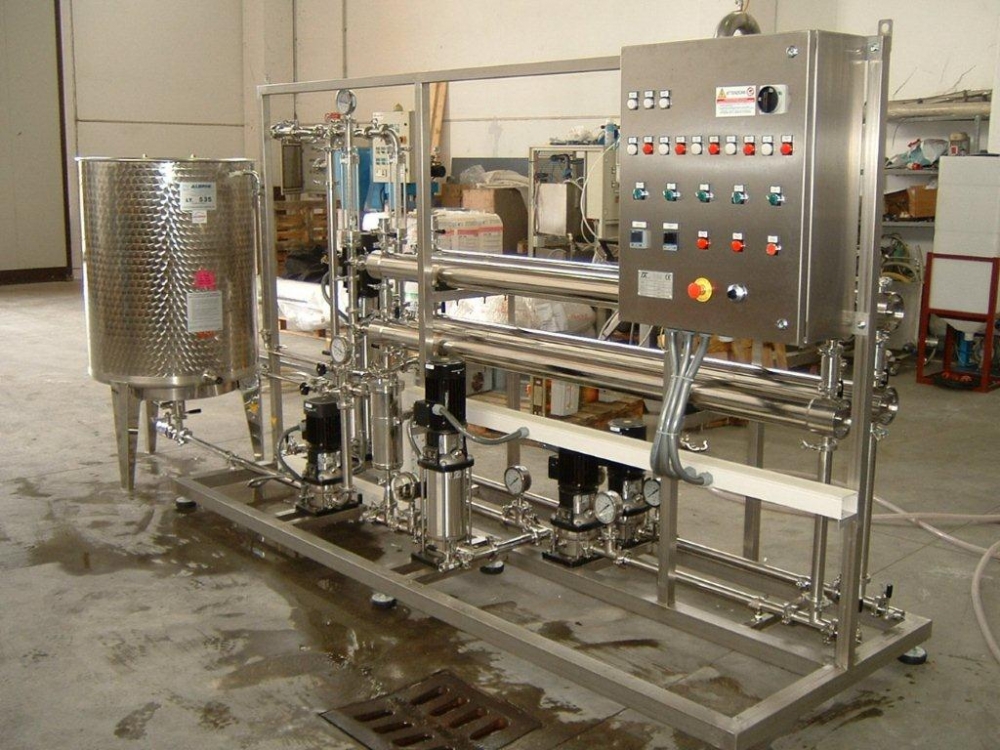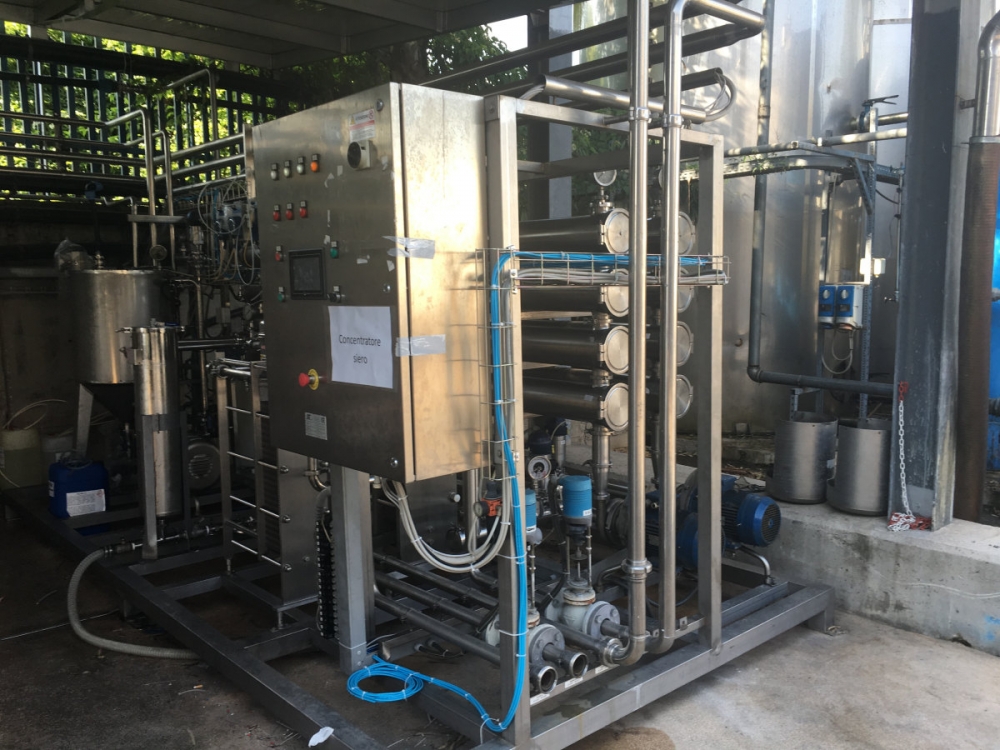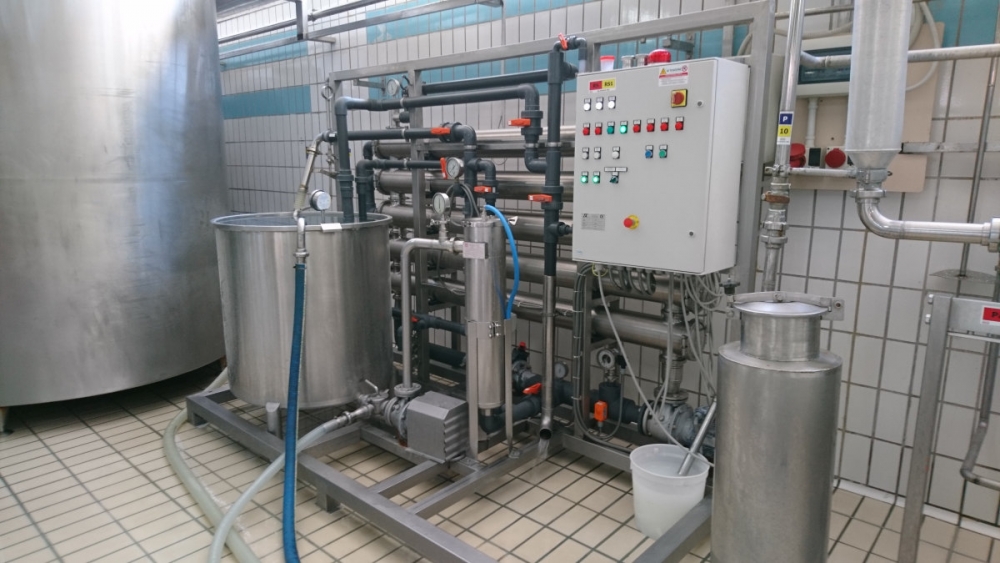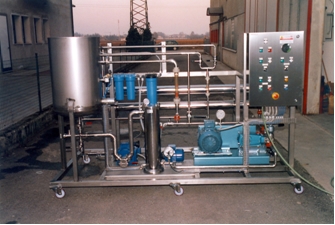Food industry treatment plants
Food industry treatment plants
Membrane separation by means of semipermeable membranes found its first large scale application in the 1950’s for the desalination of sea and brackish water (reverse osmosis).
The potential of this technology in the management of industrial solutions was quickly picked up on, especially in the food production industry which was rapidly developing in a large scale in both the USA and Europe.
Reverse osmosis, nanofiltration, ultrafiltration and microfiltration were already used in the dairy industry for the valorisation of by-products in the 1970’s (for instance in the treatment of milk whey) and later found applications in the sugar and wine industries.
We can nowadays state that these techniques play a key role in the food industry: they are a fundamental part of food machinery construction in that they allow us to transform the product and improve its quality. Food industry plants that rely purely on physical processes, with low energy consumption and in the absence of chemical products, are increasingly used.
The latter enabled us to give value to products which would have otherwise gone to waste, as well as avoiding the uncontrolled release of waste products into the environment.
T.A. Applied Technologies for the Food Industry
In vision of a circular economy perspective membrane separation technologies will constitute a fundamental aspect in the optimisation of the usage of resources and the development of increasingly sustainable products.
T.A. is one step ahead and relies on over 30 years of experience in this field: it can thus support the food industry not only by providing well consolidated construction solutions but also suggesting new development opportunities.
We provide applied technologies for the dairy industry in various processing phases. Milk whey was previously considered to be a waste product to be disposed of, but membrane separation techniques have enabled us to increasingly exploit its nutritional properties. The same technological principle can be applied in whey treatment for the recovery of proteins to obtain concentrated and standardised milk destined for the cheese industry or the production of high protein content products.
Treatment technologies based on membrane separation allow us to work at low temperatures, thus avoiding degradation of noble proteins and a decrease in quality. Furthermore, they enable bacteria removal in the absence of heat, by means of peculiar ceramic membranes with specifically designed molecular construction.
We also specialise in the realisation of spiral wound ultrafiltration and microfiltration plants, which eliminate bacterial fractions and impurities from brine waters while maintaining the chemical composition and organoleptic properties unaltered.
Membrane separation technologies have in recent years also been used in the wine industry, enabling effective operations on the structures in order to obtain must concentration or an improvement in the quality of the wine.
Discover all our applications and designs for the food industry:

We study the most suitable solution for your company.
